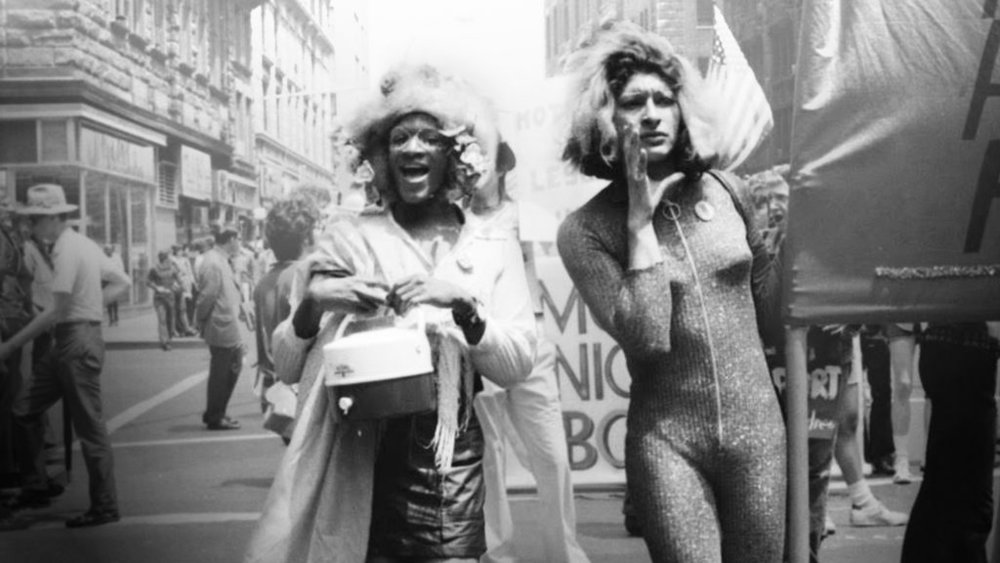
The early LGBTQ rights movement was led by two transgender women of color: Marsha P. Johnson, a Black femme from New Jersey and Sylvia Rivera, a Puerto Rican New Yorker. But what is not often told about these two fierce activists who courageously stood up to state violence by spearheading the Stonewall Riots, is that they were both sex workers. As sex workers, and especially as women of color, both Sylvia and Marsha were extremely vulnerable to police violence — yet despite this danger, they never stopped fighting, often putting their lives on the line again and again. In fact, not only were they sex workers, but they used sex work in order to fund S.T.A.R., or Street Transvestite Action Revolutionaries, an organization that strived to provide shelter and resources for homeless queer youth.
Sex workers often hold multiple marginalized identities: they may also be living with disabilities, have trauma histories, be poor or undocumented, and many sex workers are people of color. Sex workers are also intimately familiar with the value of care work and emotional labor, and by nature of the work they do, are often on the front lines of consent education and advocacy for sexual liberation. Despite the undeniable value of the work the sex worker community contributes, it remains, as ever, under fire.
Recent legislation such SESTA and FOSTA conflates sex work and sex trafficking and targets the ways consensual sex workers are able to use the internet for safety measures. The End Banking For Human Traffickers similarly does not delineate between trafficking and consensual sex work and makes it easier for banks to freeze the funds of consensual sex workers, who are often already experiencing economic instability. These laws make life more difficult and dangerous for sex workers. Some of the most vulnerable among this community, particularly “outdoor” or street workers, low-income workers, or workers who fall outside of white supremacist standards of beauty, are being hit the hardest by anti-sex work legislation. These are our queer siblings. As such, it is essential to center the needs of sex workers in our liberation movement.
It’s no secret that Marsha and Sylvia were sex workers — though it is a fact that is, unfortunately, often deliberately overlooked and erased. Why? Even within the LGBTQ rights movement, respectability politics have a long and entrenched history. Sylvia Rivera even spoke out about this when working with the Gay Activists’ Alliance (GAA) in the 1970’s. Despite her tireless anti-discrimination work on behalf of the organization, when it came time to lobby for the Civil Rights Bill, the portions of the bill that covered what was then known as “transvestitism” (and which we would now describe as transgender rights) was dropped.
According to Michael Bronski, author of A Queer History of the United States, “not only was the language of the bill changed, GAA — which was becoming increasingly more conservative, several of its founders and officers had plans to run for public office — even changed its political agenda to exclude issues of transvestitism and drag.” To add insult to injury, Bronski continues, “It was also not unusual for Sylvia to be urged to ‘front’ possibly dangerous demonstrations, but when the press showed up, she would be pushed aside by the more middle-class, ‘straight-appearing’ leadership.”
Respectability politics are seen here in sharp relief, as the queer community tried to whitewash itself to be more palatable and ingratiating to the white mainstream. Sylvia was quick to call this out for what it was, and even decades later, she was still calling it out, as Bronski writes, “In 1995, Rivera was still hurt: ‘When things started getting more mainstream, it was like, ‘We don’t need you no more.’ But, she added, ‘Hell hath no fury like a drag queen scorned.’”
Those of the most marginalized identities built a movement that was then co-opted by more privileged members of that same community — and these new leaders did nothing to re-center the focus on their forebears. This Pride, it is essential that we do the work of re-centering the conversation and making Pride not only a sex worker inclusive space but a sex worker affirming space. From femme sex workers who took part in the sex industry to support their butch lovers, for whom finding steady employment was often a challenge; to transgender youth engaging in sex work to survive, sex workers have long been at the center of the LGBTQ community. They are also often at the apex where marginalized intersections of identities meet, and no social justice movement worth its salt can continue to leave them by the wayside, especially now. As we all know, Pride is more than just a party — it started as a riot, as a fight for our rights, and there is still so much work to do.
#sexworkersrightsarehumanrights
To support sex workers now, check out:
Third Wave Fund’s Sex Workers Giving Circle
Black Sex Workers Collective
Lysistrata Mutual Care Collective

What Do You Think?